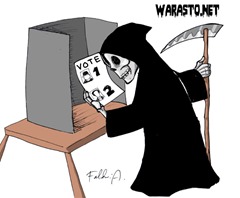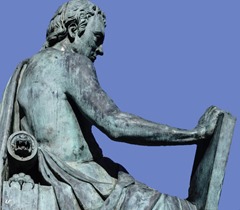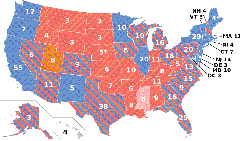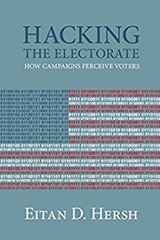You are currently browsing the category archive for the ‘Justice’ category.
For some people the simple act of driving home from work carries the weight that they may be pulled over for suspicion on no grounds other than who they are. Some parents live in persistant fear that their children may be harmed by the very officers who are empowered to protect them. For some people even open cooperation with power is met with cruel violence.

Ancient Athens was An original experiment in rule by the people (albeit flawed by its omissions) [1]. The three principles of Athenian democracy being: equal right to speak, equality under the law, and equality of vote. In the wake of a ruinous war the Athenian democracy was replaced with an authoritarian government later known as “The Thirty Tyrants.” There are always people in any community who are eager to inflict authoritarian control. The first order of business for the Tyrants was systematically reversing the democratic principles of law that were carved into a wall in city center, the Agora. The Tyrants turned the army against their own people leading to arrest, seizure of property, and executions without trial.
One of the methods of the Tyrants was turning the Athenian people against one another. They summoned certain citizens with the order of carrying out the arrest others. This policy was designed to undermine any unity of populace and integrity of individuals. Twentieth-Century East Germany made a total culture of betrayal by recruiting hundreds of thousands of ordinary citizens to spy their families and friends.
Socrates (469–399 B.C.E.) was called before the Tyrants and ordered to arrest a fellow Athenian. At his own trial (which ended in the death penalty) he recalls;
“When the oligarchy came into power, the Thirty Commissioners in their turn summoned me and four others to the Round Chamber and instructed us to go and fetch Leon of Salamis from his home for execution. This was of course only one of many instances in which they issued such instructions, their object being to implicate as many people as possible in their crimes. On this occasion, however, I again made it clear, not by my words but by my actions, that the attention I paid to death was zero (if that is not too unrefined a claim); but that I gave all my attention to avoiding doing anything unjust or unholy. Powerful as it was, that government did not terrify me into doing a wrong action. When we came out of the rotunda, the other four went to Salamis and arrested Leon, but I simply went home.” (Apology, 32 c-d).
Socrates refused to participant in perpetuating an unjust government. He accepted that his civil disobedience might lead to punishment for him. Later, after the Thirty Tyrants were overthrown, Socrates was brought to trial for “impiety and corrupting the youth.” Basically the charges amount to his showing people how they may think for themselves rather than be controlled by power, reputation, and appearance. His doing so, of course, offended people in power.
There are many tyrants in our lives; the bully on the schoolyard, the internet troll, the angry talk show host, the cruel parent, the insensitive boss, the impersonal bureaucracy, the politician who sees the increase of their own power as the only good. Yet the most dominating of tyrants is the fear in our own hearts. It is the fear that we too may suffer and that we might be criticized or mistaken. This inner fear causes us to shrink back while others among us are oppressed. It is this moral paralysis that Socrates addresses in his recounting his appearance before Thirty Tyrants. They gave him an unjust order under threat of death. But Socrates did not fear death, so he did not fear them. He could not be manipulated by the great weapon of all tyrants – fear.
Look into your own heart. Do you find fear? Do you want to act on the side of justice but find no clear way to do so? Another ancient philosopher, Siddhartha Gautama of 4th century B.C.E. India, was asked by a student; “But what can I do in the face of such great suffering and injustice in the world?” The philosopher answered;
When you see great injustice and suffering in the world, take it as a sign to you to increase your loving-kindness for the people you see everyday.

There are people now who frame peace as antithetical to justice and kindness as an obstacle to equality. Beware, this is a long worn formula for self-righteousness. From that vantage justice serves as justification, usually of violence. They will also speak of the absence of options in the situation, such as; “We have no choice except to…” (fill in the blank with whatever the righteous one truly desires).
We always have options. There is always something that we can do to choose justice, compassion, and truth. Fear is an innate rejection of change. Yet all is change, so all that we really have to lose is our fear.
In good spirit,
Jon
Notes
[1] Athenian democracy was limited to adult male citizens. Women, slaves, foreigners, and children were excluded from participation in the political process. 21st century democracies still have room to improve upon that ancient example.
Images
photo-1558258932-d435783a2626.jpg, luliia Isakova, @asredaspossible, Unspash, https://unsplash.com/photos/gY6y01Me55s
photo-1587951326187-c9baa4606bff.jpg, Tyler Scheviak, @tylerscheviak, Unspash, https://unsplash.com/photos/-Edg-zf49O4
 Adept politicians pay attention to voting bocs, which are aggregations of citizens who share interests that influence their voting. Religion, ethnicity, and age are common issue clusters around which voting blocs form.
Adept politicians pay attention to voting bocs, which are aggregations of citizens who share interests that influence their voting. Religion, ethnicity, and age are common issue clusters around which voting blocs form.
A voting bloc that has been neglected in the 2016 Presidential campaign is dead people.
It is fair to say that the 2016 Presidential election is a grave decision for voters, but it is a quite different matter that dead people register to vote in significant numbers and many of them do vote.
It is true that electoral officials work to prevent dead people from voting because they have no voting rights; still many of them vote anyway.
Election officials attempt to limit dead people voting by comparing voter registration roles and voting records against the Death Master File maintained by the Social Security Administration.
When dead people vote and are found out it is considered election fraud.
People who assist dead people with voting are charged with election fraud as was recently the case with an 88 year old Illinois woman, Audrey R. Cook.
Her husband of 66 years, Vic Cook, recently applied for absentee ballots to vote in the 2016 election but died before they could complete them together.
So Audrey went ahead and completed Vic’s for him and sent both ballots in.
Vic’s ballot was identified as a dead person voting and was nullified.
Audrey now faces potential election fraud charges.
 The case is complicated by the fact that both Vic and Audrey were Madison County election judges, as Audrey was when she filed the dead person vote.
The case is complicated by the fact that both Vic and Audrey were Madison County election judges, as Audrey was when she filed the dead person vote.
I hope that the Illinois Attorney General will cut Audrey a break.
She is grieving a loss and to her Vic is not really gone, so it is comprehensible to me that she would assist him in casting his last vote, even from the grave.
Vic’s dead man vote will not count in the election, of course, but we should have compassion enough for people like Audrey who lose those they love to understand how they may continue to act as if they were among the living.
Conversations on topics such as in this post are common at Death Cafe Corvallis. You are welcome to participate. Information at Death Cafe Corvallis.
Image Acknowledgements
vote.jpg
https://warasto.files.wordpress.com/2014/07/vote.jpg
20150417-3241-dmi4mw.jpg
https://62e528761d0685343e1c-f3d1b99a743ffa4142d9d7f1978d9686.ssl.cf2.rackcdn.com/files/78456/width926/image-20150417-3241-dmi4mw.jpg
Dark_Rosaleen_Anarchy_1.svg
https://en.wikipedia.org/wiki/Black_rose_(symbolism)#/media/File:Dark_Rosaleen_Anarchy_1.svg
 I think it a fair observation that most Americans are not pleased with the 2016 Presidential contest, but it is also fair to challenge ourselves to describe what we would prefer.
I think it a fair observation that most Americans are not pleased with the 2016 Presidential contest, but it is also fair to challenge ourselves to describe what we would prefer.
What do you hope for the American political process to be?
The answer to that question lies in your presuppositions about human nature and the purpose of government.
Philosopher John Locke (1632–1704) produced an influential account of the concept of government and the basis of its validity in his “Second Treatise on Government.”
concept of government and the basis of its validity in his “Second Treatise on Government.”
A key idea in that work is the assertion that the purpose of government is to protect the rights of life, liberty, and property of its citizens and to pursue the public good.
If this idea sounds familiar, then you may be thinking of the authors of the American Constitution and Declaration of Independence who closely followed Locke’s political philosophy.
So how does a government determine which actions will best protect the rights of its citizens?
Some people think that government should be minimal, allowing economic powers such as corporations to manage society.
Other people think that government should advance the pubic good even if that requires overriding the natural rights of some citizens.
A third view is promoted by an OSU graduate student, Sami Al-AbdRabbuh (Industrial Engineering) who is also is a candidate in the 2016 election for the Oregon State House of Representatives for District 16 – Corvallis and Philomath.
He argues that science should be the basis of governance; “Science is the act of learning in a way that is more impactful than just trial and error or following the trends of the polls. Public policy that’s informed by trial and error and perceptions isn’t going to do so much good.”
Al-AbdRabbuh believes that our current political system promotes decisions produced by emotion-laden perceptions generated by stories that competing politicians sell to the voters solely for the purpose of getting elected.
A rational society, he maintains, would develop public policy from rigorous data gained from the real-life experiences of the people in it.
His idea proposes that we use scientific method to determine and weigh the interests of individuals and produce analyses that distribute the promotion of those interests fairly across the population.
Al-AbdRabbuh champions science as a model for government because science is a successful means of neutralizing our social/cognitive biases which make it appear as if the experiences that individuals have in common are instead issues of opposition.
This is a good point that you can see played out in the current election.
If you systematically study individual people from different cultures you find that there is a significant commonalities among people regarding basic needs and values.
Given this evidence some people immediately focus on the fact that the cultures are different and so assume that the needs and values of individuals from them are also different.
When someone’s social/cognitive bias selects out the differences only, there is little hope for them to perceive the factual commonalities.
Al-AbdRabbuh believes that scientific method allows us to minimize these biases and bring the authentic lives of many different people into productive co-operation.
It is true that science is one of our most powerful problem-solving methodologies.
It is also true that many people do not trust science and I agree that there are reasons to be suspicious of it.
Science does not have a built-in moral guide which is how we end up with social problems that are the products of science such as nuclear weapons and global pollution.
Now we face potential dilemmas with scientific advances in artificial intelligence and genetic engineering.
If government is required to regulate the excesses of science, how can science be trusted to guide public policy?
The answer to this concern is that the “science” at issue here is not an institution or interest group, but rather a form of thinking, the scientific method..png)
Scientific method is logical reasoning based in measurable evidence and testable claims.
The criterion of testability is essential to this concept of science because the method involves testing a claim against the ways in which it may turn out to be false.
Compare this to the major campaign claims in our national election; “We stand stronger together” and “I will make America great again.”
These are not testable claims; it is not clear what would count as measurable evidence for or against them.
In contrast to emotional story telling which is designed to persuade the electorate, Al-AbdRabbuh argues that we need governance based on reasoned analysis of evidence that comes from listening to the needs and values of individuals.
Such government would be based in a science of human relations.
In the 3rd century BCE Plato argued that our leaders should be philosophers and by that he meant they should be well practiced at logical and analytical thinking, which today is largely the domain of the sciences.
Al-AbdRabbuh points out that governance by scientific thinkers “is not an outrageous idea. Thomas Jefferson was an inventor and German leader Angela Merkle is quantum chemist.”
You may assess Al-AbdRabbuh’s platform and qualifications on their own merits at http://sami2016.com.
So far as I can tell he is the only candidate in the current election who is talking about the form of thinking that should guide public policy and for that reason he is worth listening to.
Image Acknowledgements
12480988943_6e8357c76f_b.jpg
https://www.flickr.com/photos/donkeyhotey/12480988943
john_locke.png
https://upload.wikimedia.org/wikipedia/commons/6/69/John_Locke.png
The_Scientific_Method_(simple).png
https://upload.wikimedia.org/wikipedia/commons/2/27/The_Scientific_Method_(simple).png
Plato_-_Allegory_of_the_Cave.png
https://upload.wikimedia.org/wikipedia/commons/1/14/Plato_-_Allegory_of_the_Cave.png
As I write this armed protestors are playing a deadly game of chicken with the FBI in Eastern Oregon and opinions on the situation are furiously flying.
Some commentators focus on the race of the protesters, some on their religion, others are concerned about guns, cattle, land use, rural culture, politics, hypocrisy, the sentiments of local people in Burns, arson, Ferguson, Occupy Wall Street, al-Qaida, Daesh, Nazis, as well as the protesters’ preferences in snack foods and hats.
One point that is missing from the majority of opinion pieces is the primary cause of why Ammon Bundy and his group are motivated to such unwise and illegal action.
That primary cause is the Antiterrorism and Effective Death Penalty Act of 1996 (AEDPA). Whatever you think of the  current situation in the Malheur wilderness it is worth considering what this law is about because it affects all of us.
current situation in the Malheur wilderness it is worth considering what this law is about because it affects all of us.
The Antiterrorism and Effective Death Penalty Act of 1996 was passed in the wake of the bombing of a Federal Building in Oklahoma, a terrorist act that killed 168 people.
AEDPA is a huge law with sections of statutes on restitution for victims of terrorism, funding for law enforcement against terrorism, restrictions on nuclear, biological and chemical weapons, international terrorism prohibitions, and criminal law modifications to counter terrorism.
Many of these statutes are good ideas, but two parts of AEDPA are very bad ideas leading to injustice without helping to stop terrorism.
Intelligent Americans should investigate and challenge AEDPA and policies that unjustifiably reduce our freedom.
One of the bad ideas is the suppression of habeas corpus rights. The other bad idea is allowing people to be convicted of terrorism for actions that are clearly not terrorism.
The opening section of AEDPA limits judicial review of appeals by defendants. The intention was to shorten the time between convictions and executions by making it harder for convicts to appeal their sentences.
The effect has been to obstruct the right to appeals overall.
This seems like a great idea to some people because it allows the government to carry out punishments more efficiently.
The common defense in favor of punitive efficiency is that limiting appeals prevents frivolous appeals. That is true, but it also prevents legitimate appeals.
What is a legitimate appeal? Well, the law is conducted by people, some of whom make mistakes or cheat or break the law themselves.
When a conviction is achieved by wrongdoing by the enforcers – such as lying, planting evidence, or mistaken identity – the individual has the right to defend themselves against the government.
That right is habeas corpus which is the foundation of all human rights, because if an individual cannot legally challenge what the government does to them, no civil right can be exercised.
That fundamental right, habeas corpus, is currently at its weakest point in American history.
AEDPA cast the first stone against habeas corpus in modern America. The Patriot Act of 2001 knocked that freedom to its knees. The Bush and Obama extra-judicial executive actions have rendered every American citizen nearly powerless against our bureaucracy with respect to judicial review (Reinhardt 2015).
I grieve the oppression of people who seek justice such as in Ferguson and Minneapolis, yet I tell you that as sadly as racism raises its ugly head, unchecked power is the the engine of racial and all injustice.
The second bad idea in the AEDPA is the government’s ability to convict people who are not terrorists of “terrorism.”
The concept of terrorism varies but you know what it looks like and I believe that most of us understand it to be intentional violence against civilians in service of a political agenda. There are many crimes and some of them are heinous, but most of them are not terrorism (Orye 2002).
service of a political agenda. There are many crimes and some of them are heinous, but most of them are not terrorism (Orye 2002).
This distinction matters because our government seeks special powers on the basis of protecting us against terrorism and we readily give it to them.
In fact our government has won the special power of the suppression of habeas corpus on the basis of protecting us against terrorism.
When government agencies expand those special powers to include acts that are not terrorism that power is no longer special, it is the norm and the law of the land.
The more crimes classified as terrorism the less freedom every individual has to challenge their government and the less our governmental agencies need to account for their actions.
AEDPA codifies the following as law; “Criminal Law Modifications to Counter Terrorism – Enhanced Penalties for Use of Explosives or Arson Crimes: Whoever maliciously damages or destroys, or attempts to damage or destroy, by means of fire or an explosive, any building, vehicle, or other personal or real property in whole or in part owned or possessed by, or leased to, the United States, or any department or agency thereof, shall be imprisoned for not less than 5 years and not more than 20 years, fined under this title, or both.”
This Counter Terrorism statute is the law under which the Oregon ranchers – the Hammonds – were convicted. Because of that they are held to minimum five year sentences despite the trial judge Thomas Hogan’s emphatic dissent.
“with regard to the Antiterrorism and Effective Death Penalty Act of 1996, this sort of conduct could not have been conduct intended under that statute…in addition, it just would not be — would not meet any idea I have of justice, proportionality. I am not supposed to use the word "fairness" in criminal law. I know that I had a criminal law professor a long time ago yell at me for doing that. And I don’t do that. But this — it would be a sentence which would shock the conscience to me.”
[District Court of Oregon Judge Michael R. Hogan’s remarks at the 2012 sentencing of Steven and Dwight Hammond].
Let’s agree for the moment that the Hammond’s are arsonists. They set fires that burned acres of wilderness. That’s illegal and they served time in prison and paid hefty fines.
Do you also think that they are terrorists?
I don’t think that they are terrorists in even the worst case description of their acts of arson.
Arson is a crime but should only count as terrorism when it is enacted to kill civilians for political purposes. Yet, the Hammonds cannot effectively appeal their convictions as “terrorists” because under the AEDPA law the rights of convicted terrorists are limited.
Let me put that last point another way. Here is the legal logic that AEDPA allows. You are charged and convicted as a terrorist. You do not think that you are a terrorist because you did not harm anyone or intend to, so you seek to challenge the “terrorist” charges. Yet you cannot legally challenge the “terrorist” charges against you because terrorists are not allowed to do so.
Well, that legal double-bind may make sentencing more efficient, but if this seems to you to serve justice, then I suggest that you will find gratification in reading Kafka.
The Hammond case is the result of a bad law that harms us all. The anti habeas corpus statutes of ADEPA should be repealed. The Supreme Court is divided on this matter and the outcomes depend much on our choices – such as elections and our voices.
The protesters in Malheur are in-part motivated by this injustice. It is an injustice, not just for two Oregon ranchers, but for all of us.
“Injustice anywhere is a threat to justice everywhere.”
It is also true that Ammon Bundy’s sovereign citizens have chosen the wrong way to protest their grievances. They should drop their guns, surrender and go to jail.
President Obama, who studied and taught constitutional law, should commute the extended sentences of the Hammonds.
Intelligent Americans should investigate and challenge AEDPA and policies that unjustifiably reduce our freedom.
In so doing we all should look for guidance to a moral and spiritual philosopher who’s birth we celebrate this week. Martin Luther King did not carry a gun. He led a transformation of America and the world for the better through his courage and words – among them; “Injustice anywhere is a threat to justice everywhere.”
Bibliography
Caplan, L. (2015, June 21). The Destruction of Defendants’ Rights – The New Yorker. Retrieved January 22, 2016, from http://www.newyorker.com/news/news-desk/the-destruction-of-defendants-rights
O’Bryant, T. C. (2006). The Great Unobtainable Writ: Indigent Pro Se Litigation After the Antiterrorism and Effective Death Penalty Act of 1996. Harvard Civil Rights-Civil Liberties Law Review, 4, 299-337.
Orye, B. R., III. (2002). The Failure of Words: Habeas Corpus Reform, the Antiterrorism and Effective Death Penalty Act, and When a Judgment of Conviction Becomes Final for the Purposes of 28 U.S.C. 2255(1). William & Mary Law Review, 44(1), 441-485.
Reinhardt, S. R. (2015). The Demise of Habeas Corpus and the Rise of Qualified Immunity. Michigan Law Review, 113(7), 1219-1254.
Young, R. (2006). Defining Terrorism: The Evolution of Terrorism as a Legal Concept in International Law and Its Influence on Definitions in Domestic Legislation. Boston College International and Comparative Law Review, 29(1), 3rd ser., 23-105.
Image Acknowledgements
man_in_the_maze_flicker.jpg
https://www.flickr.com/photos/generated/3409686604
Wikinews_tag_terrorism.png
https://commons.wikimedia.org/wiki/File:Wikinews_tag_terrorism.png
 Everyone dies, but most of us never kill anyone. Americans are divided over whether it is moral to take a person’s life. On the matter of State executions 37% affirm that it is not acceptable to kill prisoners while 61% maintain that it is morally acceptable to kill prisoners. That moral divide has held rather constant over decades. Now it appears to be in transition.
Everyone dies, but most of us never kill anyone. Americans are divided over whether it is moral to take a person’s life. On the matter of State executions 37% affirm that it is not acceptable to kill prisoners while 61% maintain that it is morally acceptable to kill prisoners. That moral divide has held rather constant over decades. Now it appears to be in transition.
The National Association of Evangelicals (NAE) is a major Christian group with a powerful political lobby representing 45,000 churches. For 40 years the NAE has been a staunch proponent of State executions. The basic argument of the NAE has been that in order to be pro-life we must be willing to kill people.
“If no crime is considered serious enough to warrant capital punishment, then the gravity of the most atrocious crime is diminished accordingly.” (NAE, 1973)
In 2015 the NAE issued a new Resolution on Capital Punishment which for the first time recognizes differing views on State execution among Evangelicals. The new resolution does not assert a stand for or against capital punishment. Instead it recognizes that significant biblical and theological cases can be made both in favor of and in opposition to State execution.
“Evangelical Christians differ in their beliefs about capital punishment, often citing strong biblical and theological reasons either for the just character of the death penalty in extreme cases or for the sacredness of all life, including the lives of those who perpetrate serious crimes and yet have the potential for repentance and reformation. We affirm the conscientious commitment of both streams of Christian ethical thought” (NAE, 2015)
 This is a major shift away from the NAE’s long standing decree that robust support for State executions is the only legitimate position for Christians.
This is a major shift away from the NAE’s long standing decree that robust support for State executions is the only legitimate position for Christians.
It is positive to witness a recognition of diversity of views on moral issues by a staunch conservative body.
When a long standing major proponent of a policy moderates it’s stance, the times are changing.
Sources
NAE Resolution on Capital Punishment, 1973
http://nae.net/capital-punishment/
NAE Resolution on Capital Punishment, 2015
http://nae.net/capital-punishment-2/
New NAE Resolution Recognizes Different Views on Death Penalty, 2015
New NAE Resolution Recognizes Different Views on Death Penalty
The National Association of Evangelicals has changed its position on the death penalty, Washington Post, 2015
https://www.washingtonpost.com/news/acts-of-faith/wp/2015/10/19/the-national-association-of-evangelicals-has-changed-its-position-on-the-death-penalty/
Image Acknowledgements
o-LETHAL-INJECTION-PRISON-facebook.jpeg
http://www.huffingtonpost.com/2014/12/24/ohio-inmates-death-penalty-lawsuit_n_6378368.html
414388769_eee7427f32.jpeg
https://www.flickr.com/photos/drivebackintime/414388769
sunrise-182302_640.jpeg
https://pixabay.com/en/sunrise-lake-water-scenic-182302/


 promises literally and I have come to believe that Trump voters construct his meaning not all literally, but symbolically.
promises literally and I have come to believe that Trump voters construct his meaning not all literally, but symbolically.





